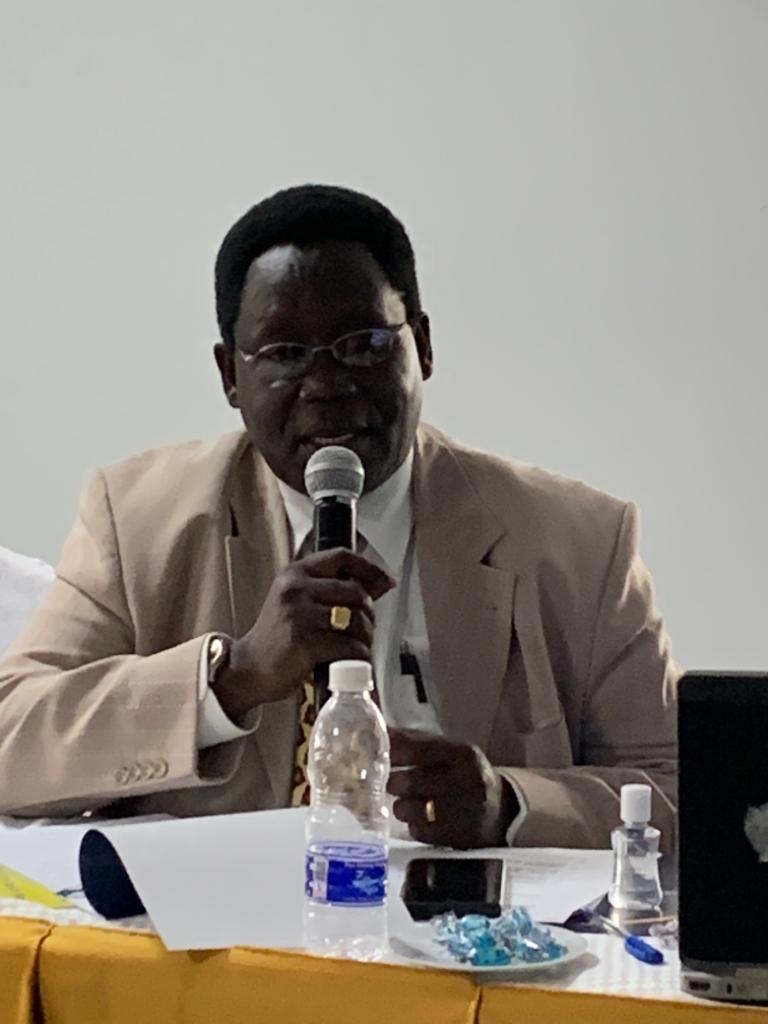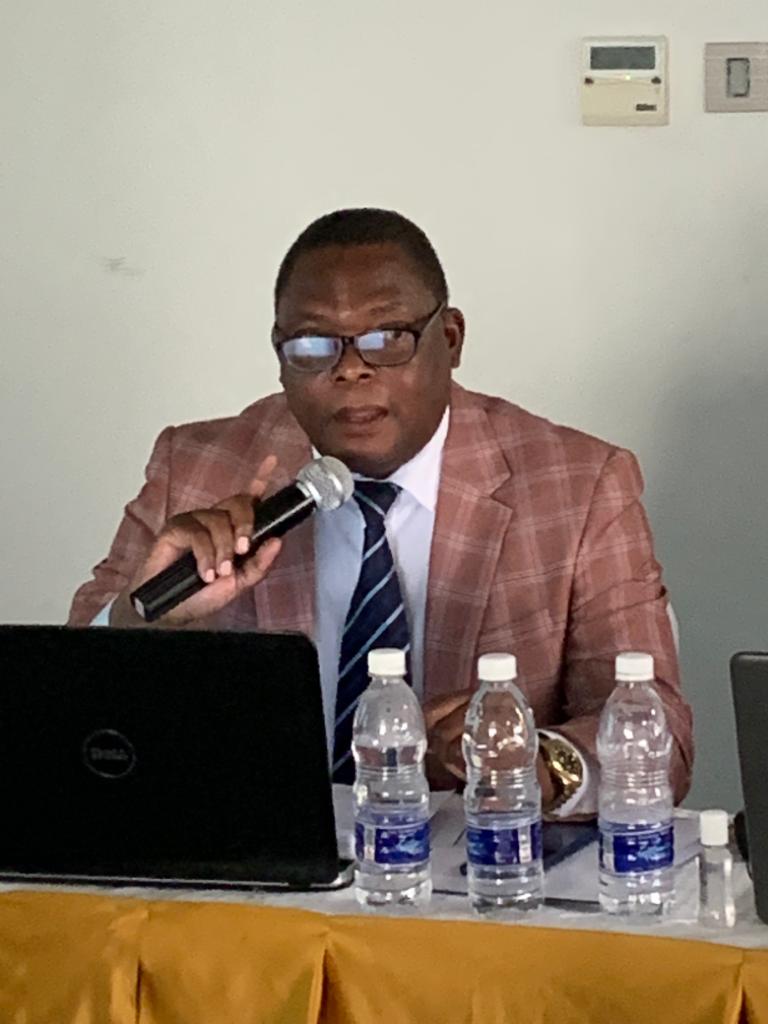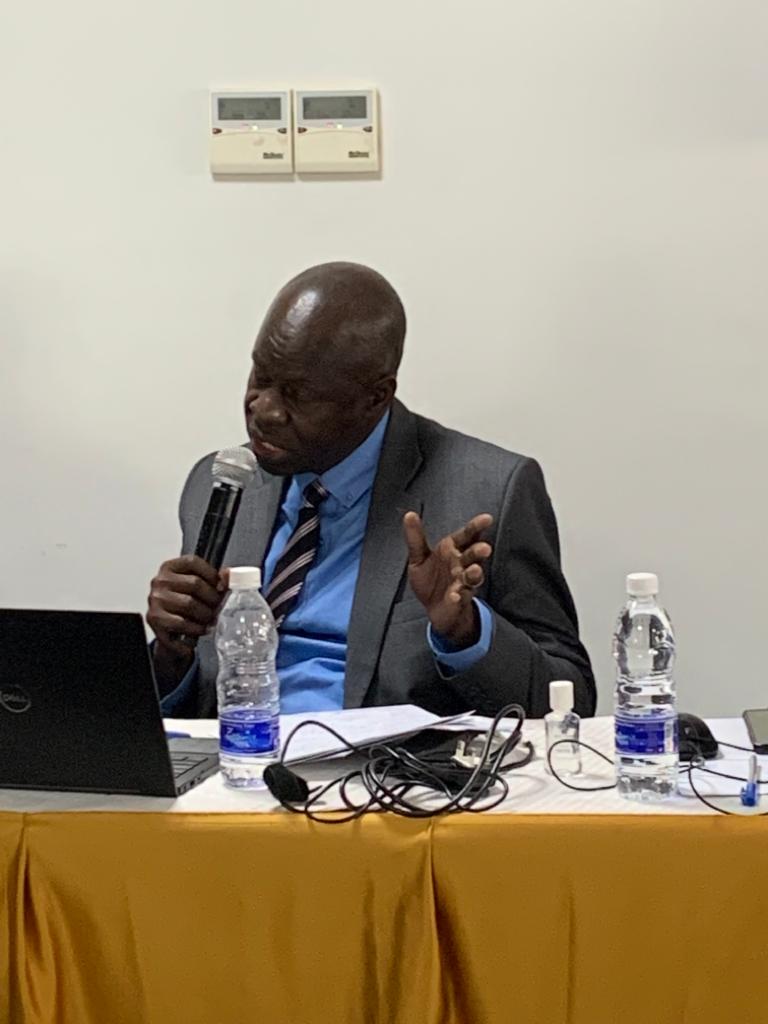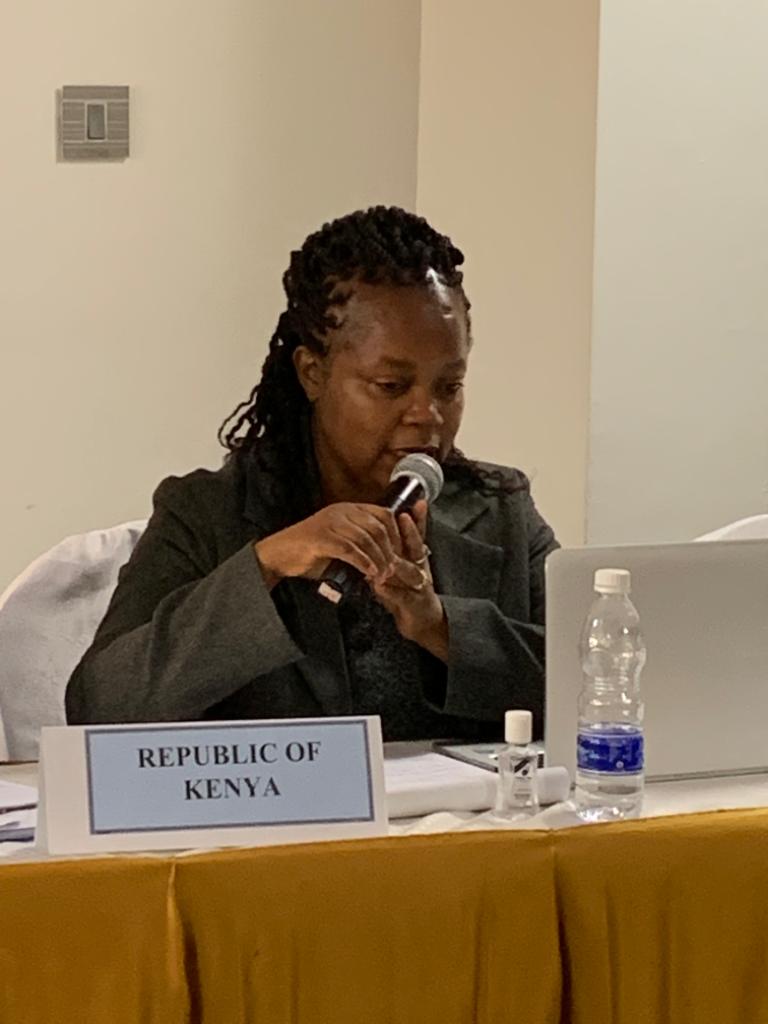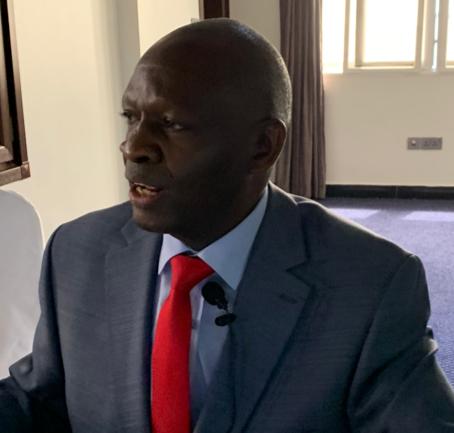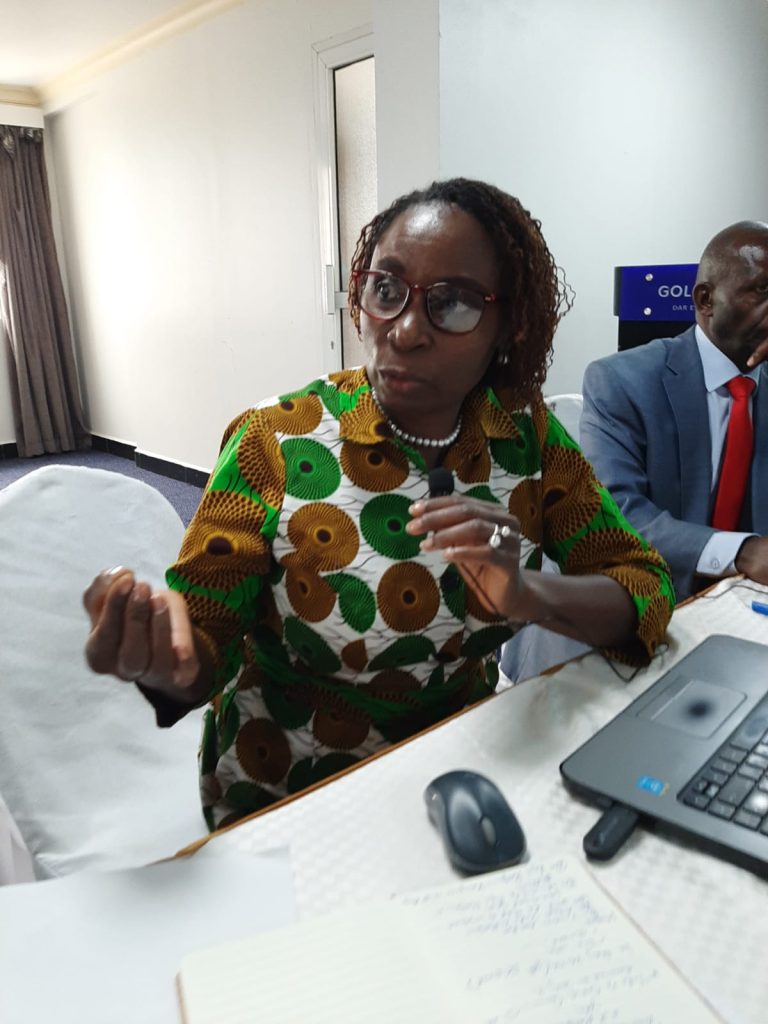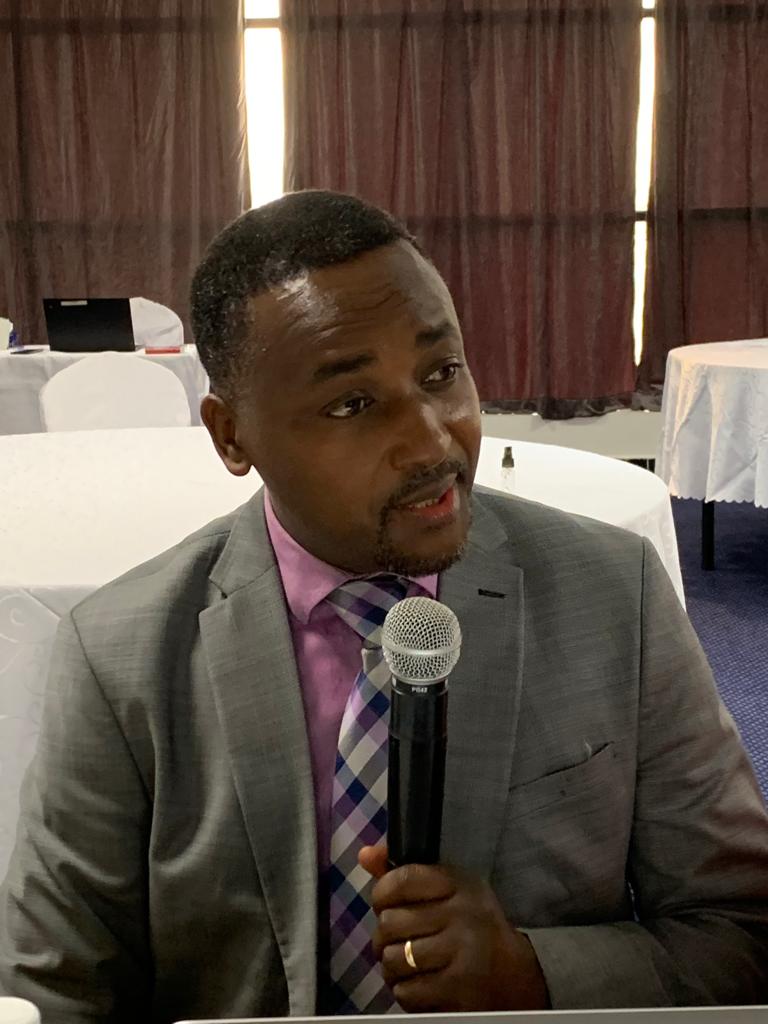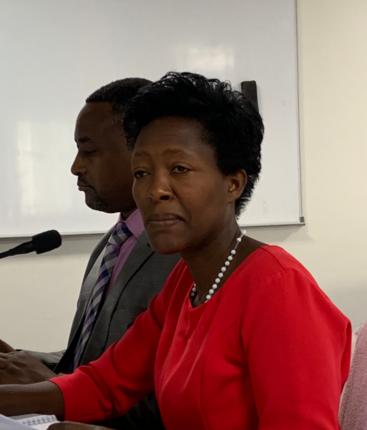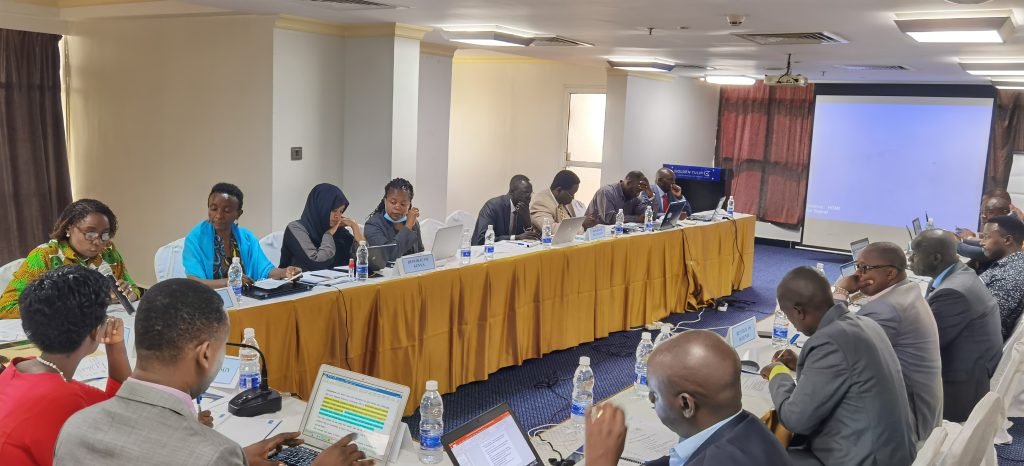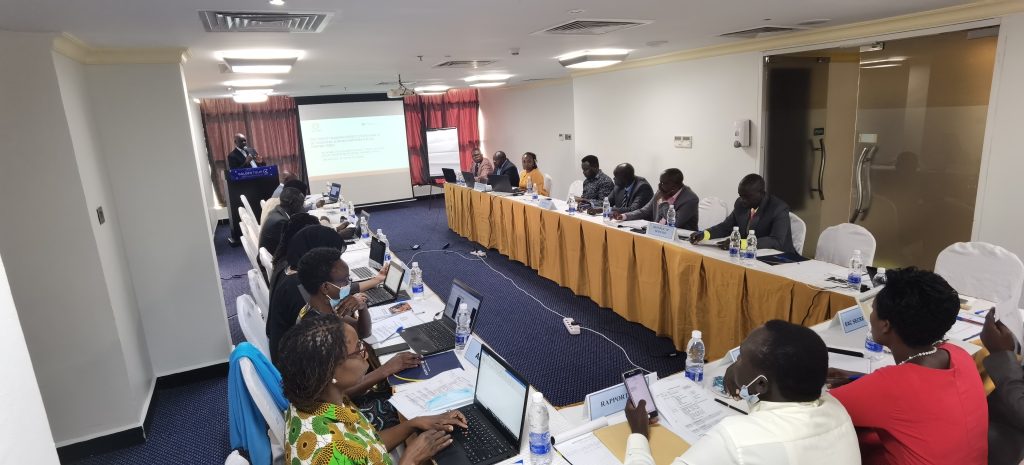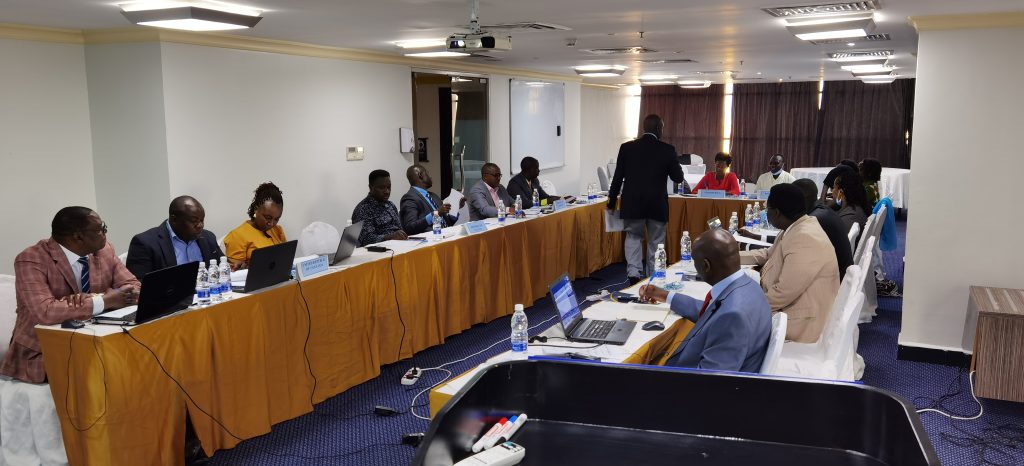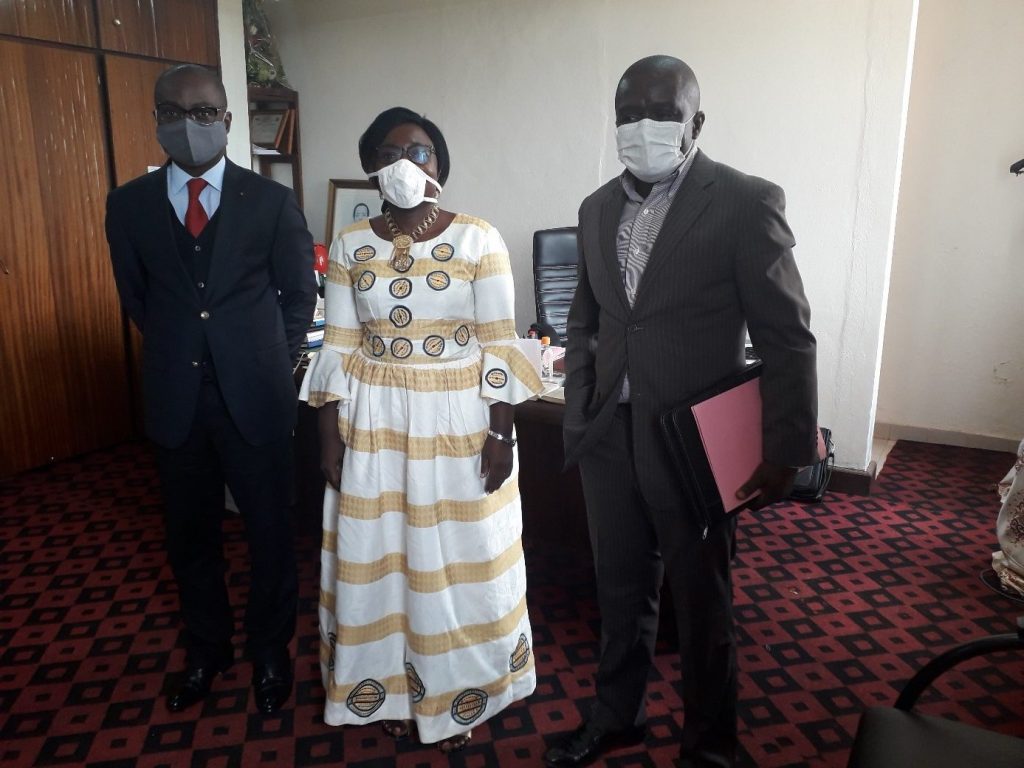Category: News
Land Stakeholders Chart Course on Land Transformation in Ghana
From the 6th to the 9th of December, land stakeholders in Ghana will convene at the 2022 National Land Conference to institutionalize a structured arrangement for multi-stakeholder participation in the transformation of the land sector in Ghana.
The conference was organised under the theme – Leveraging National Land Policy, Legislation and institutional Capacity Towards Sustainable Socio-Economic Development by the Ministry of Land and Natural Resources and COLANDEF with the support of the German Development Cooperation, NELGA and other partners.
The conference creates the platform to discuss policy options and experiences, present new research and scalable innovations, foster high-level support and ownership of interventions to tackle land governance, and empower and develop the capacities of the land sector stakeholders. The Conference will establish a multi-stakeholder platform that will monitor the implementation of the conference’s recommendations, including the implementation of Ghana’s new national land policy and provide support for improving land governance and land administration in the country on a sustainable basis.
Click here to read more about the conference.



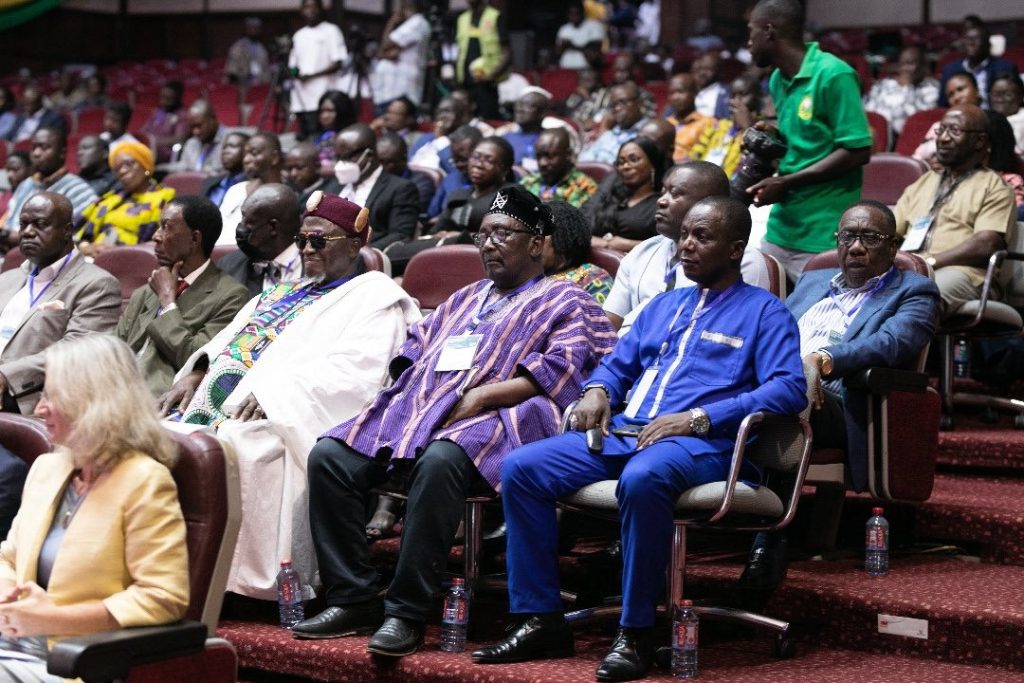
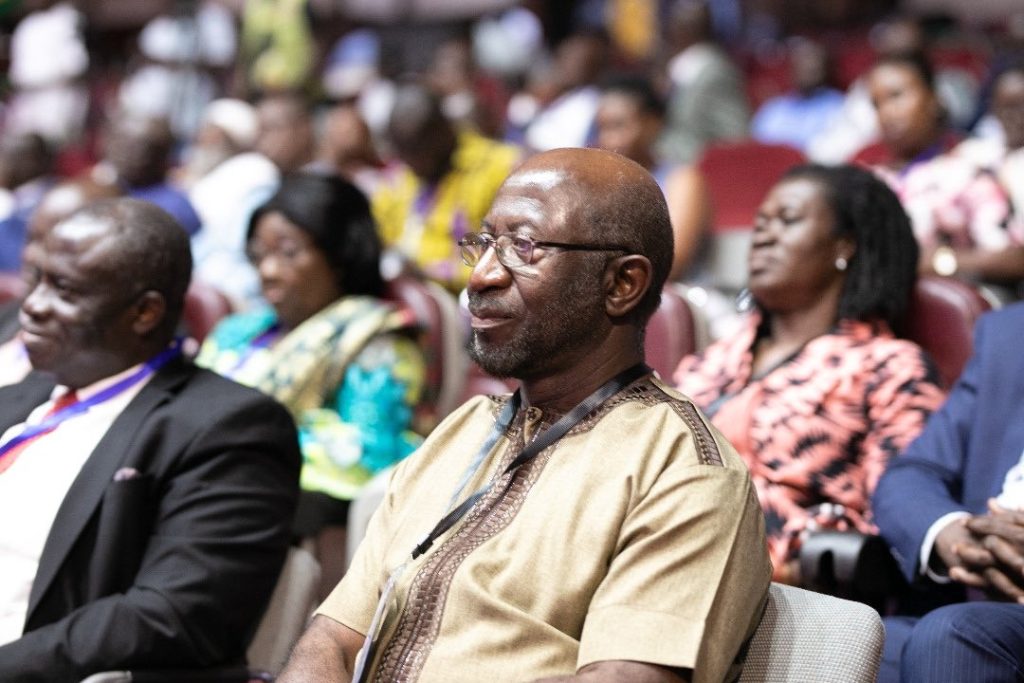
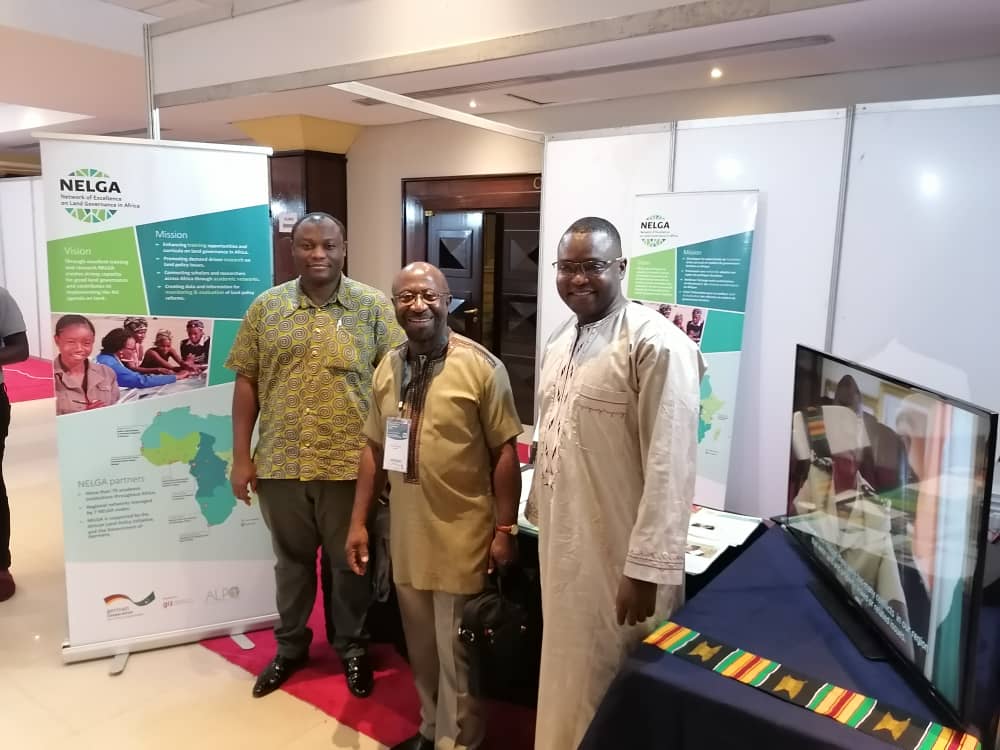
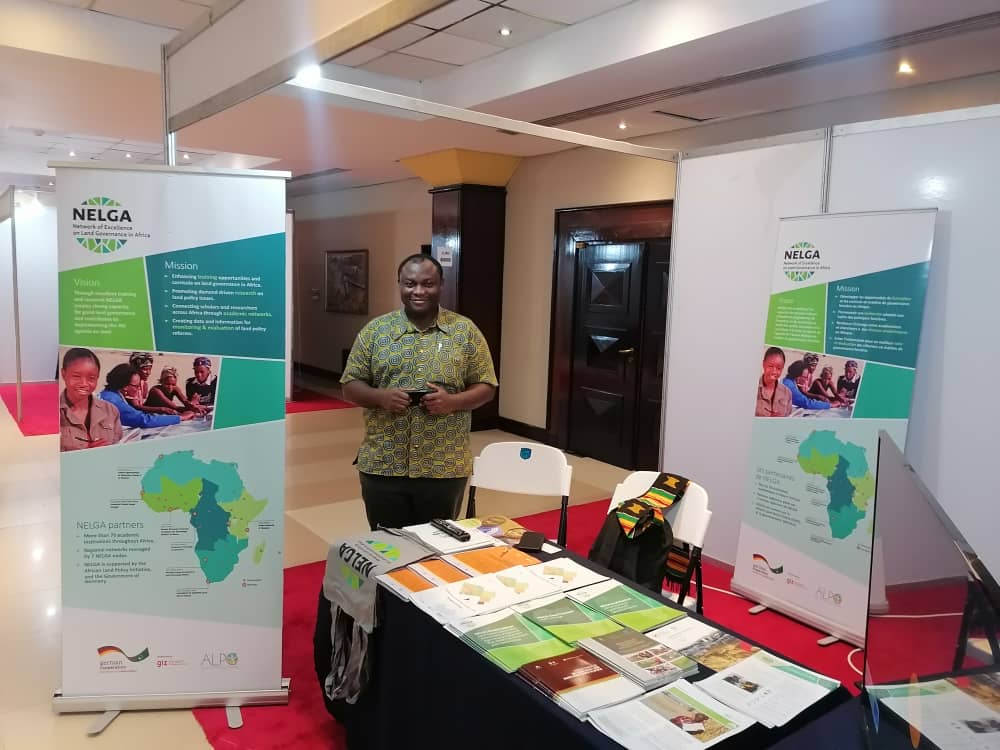
East Africa Establish Regional Steering Committee on AU Land Agenda Â
Partner States (PS) from the East Africa region established a Regional Steering Committee (RSC) at the end of a three-day meeting of the Regional Technical Working Group (TWG) on the Terrestrial Ecosystem on July 28. The RSC will oversee and coordinate the implementation of the AU Declaration on land and provide policy and technical guidance to the PS and East Africa Community (EAC) Secretariat on the overall implementation of the AU land agenda. While endorsing the terms of reference for the RSC, Members at the meeting applauded the milestone as an important step and timely for land policy development, review and implementation, especially as some PS are yet to enact comprehensive land policies. The RSC will support technical working groups that will oversee implementation efforts in the region to address capacities and best practices to enhance land reforms in the region.
The African Land Policy Centre (ALPC), charged with the custodian role on the AU land agenda, provided technical support in setting up the RSC in coordination with the EAC secretariat. Joan Kagwanja, the ALPC Coordinator, also commended the TWG’s commitment to the ECA-EAC partnership and the establishment of a multi-sectoral coordination platform at national and regional levels for the PS to share experience, and information, lesson learned and best practices in land policy formulation and implementation.
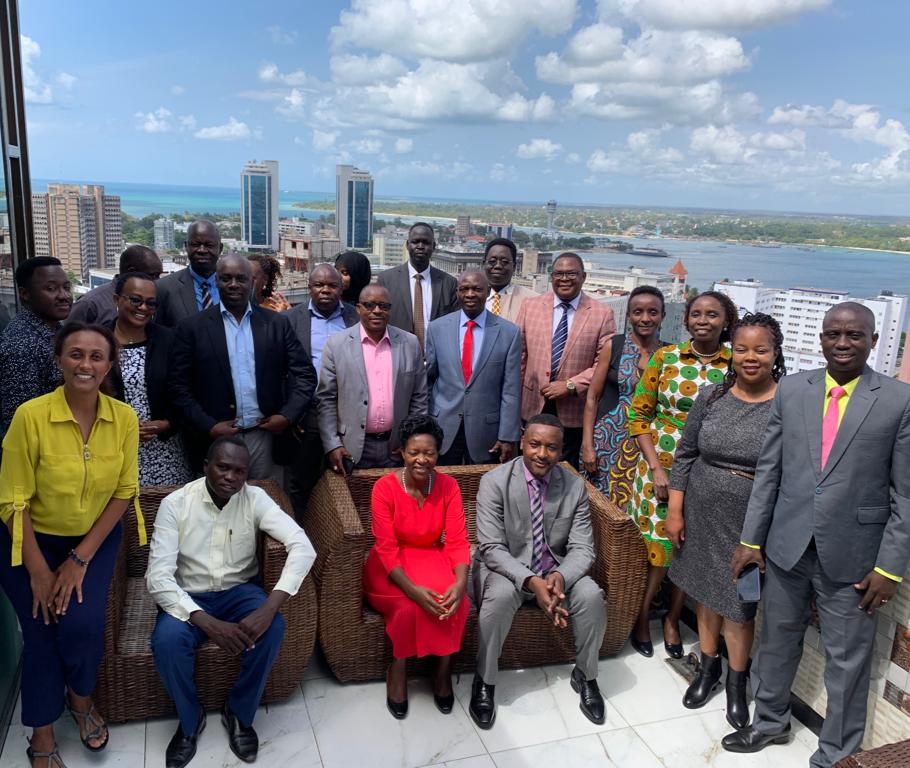
Jean Baptiste Havugimana, Director of Productive Sectors (DPS), EAC Secretariat, stressed the need for Partner States to cooperate in implementing the AU land agenda. He shared insights on the progress made in the EAC region on land governance while stressing the importance of operationalizing the regional land platform by the end of 2022 as it is a crucial directive by the 8th Sectoral Council on Environment and Natural Resources Management.
On capacity development, the PS called on the EAC Secretariat and ALPC to build the capacity of the PS on the AU declaration. They also requested the full engagement of existing Centers of Excellence (CoE) in knowledge sharing that forms the basis for policy review and development, especially as the Centers of Excellence have sectoral knowledge. This will ensure mutual learning and understanding of expectations and support their policies’ alignment with the Framework and Guidelines on Land Policy in Africa.
Moving forward, the PS agreed to hold the first meeting for the RSC in August to discuss the capacity development road map and the coordination role of the RSC to assume leadership.
Partner States Experts’, drawn from ministries and institutions responsible for EAC affairs, land policies development, land use planning and administration, and environment and natural resources management from Tanzania, Kenya, South Sudan, Uganda and Rwanda, attended the meeting.
Technical Experts in Africa Hold Planning Meeting on Land Governance in Africa
Land governance specialists design 2020-2021 work plans in the face of Covid Crisis
Virtual, 16 September 2020 –The Network of Excellence on Land Governance in Africa (NELGA) and its regional and technical nodes met virtually on Wednesday, 16 September 2020, under the coordination of the African Land Policy Center (ALPC), to review the progress made regarding the 2020 work plans, to appraise NELGA secretariat work plan for 2020-2021 and encourage coordinated efforts to meet African Union agenda on land.
The technical planning meeting is part of the continental programme comprised by ALPC, NELGA, and GIZ, which includes land governance technical experts, academics, , and government stakeholders, tasked to provide academic support and oversight, research data and reports, and policies recommendation to influence land governance and reforms in Africa. The planning meeting is an event that brings together NELGA stakeholders to look at the experience of the past months of working together, identify lessons learned, and tag areas for the next steps.
The meeting was opened by the Chief of the African Land Policy Centre, Dr. Joan Kagwanja, and co-chaired by the GIZs Strengthening Advisory Capacities for Land Governance, Head of Program, Ms. Anita Hernig.
In her opening remarks, Dr. Kagwanja stated, “The planning meeting provides additional insight and information which helps NELGA secretariat and ALPC develop actions to advance practical steps towards moving the dial on policy changes in land administration in Africa. Ultimately it needs to get there. Besides the usual focused discussions on what we have done in the different areas of land governance work and exchanges, I am looking forward to building more synergy to meet set goals.”
The meeting celebrated the successful establishment of the NELGA secretariat and the onboarding of its multi-nationality pioneer staff in the height of the Covid Crisis. “It is expected that with the full recruitment of the secretariat team, this will enhance communication, coordination, and collaboration within the Network at the continental level,” explain Dr. Kagwanja.
The NELGA secretariat will improve the coordination, knowledge generation and dissemination of the network’s activities jointly with NELGA Institutions across the continent through its regional nodes. These activities include training for NELGA students, implementation of the NELGA scholarship programme, advocating and facilitating delivery of trainings for scholars and policy makers in the region; and work with the RegRECs and other regional/national stakeholders to generate data. Working through the regional nodes, the secretariat will coordinate regional activities involving NELGA member institutions, linking them to other NELGA regional networks for joint activities, knowledge sharing and partnership building.
The planning meeting also discussed the regional work plans from North Africa, East Africa, Southern Africa, Central Africa, and Anglophone and Francophone West Africa, including reports from technical partners. The meeting provided an opportunity to showcase the network results through collaborative research, scholarships programs and knowledge exchange, review the comprehensive and harmonized workplans, introduce new partnerships, opportunities and sustainability strategies, to meeting the African Union’s commitment to improving land policies in Africa for 2020-2021.
Following the meeting, the participants agreed that the network had introduced innovative methods in response to Covid-19. It is essential to consolidate these lessons, especially for how the academic institutions have introduced digital platforms to foster e-learning on land governance. This and other lessons learnt will be found on the NELGA Website homepage in the coming months.
The event brought together diverse representatives of regional stakeholders from Ghana, Senegal, Morocco, Ethiopia, Cameroon, Tanzania, Namibia, South Africa and Germany.
###
NOTE TO EDITORS:
The African Land Policy Centre (ALPC), formerly called the Land Policy Initiative (LPI), is a joint programme of the tripartite consortium consisting of the African Union Commission (AUC), the African Development Bank (AfDB) , and United Nations Economic Commission for Africa (ECA). Its purpose is to enable the use of land to lend impetus to the process of African development. The programme is governed by a Steering Committee that meets periodically, while a joint secretariat implements day to day activities.
To strengthen human and institutional capacities for implementing the AU agenda on land, ALPC established the Network of Excellence on Land Governance in Africa (NELGA). NELGA is a partnership of leading African universities and research institutions with proven leadership in education, training, and research on land governance. Currently, NELGA has more than 50 partner institutions across Africa. NELGA aims to: enhance training opportunities and curricula on land governance in Africa; promote demand driven research on land policy issues; connect scholars and researchers across Africa through academic networks; and create data and information for monitoring and evaluation on land policy reforms.
The Network of Excellence on Land Governance in Africa Launches its Continental Secretariat in Ethiopia
The Network of Excellence on Land Governance in Africa (NELGA) has launched its continental secretariat, which aims to, among other things, strengthen the steering and management of NELGA’s activities on the continent. It is expected that with the establishment of the secretariat, the network will enhance its communication, coordination, and collaboration efforts to build on established results, foster an enabling environment to influence land policy frameworks through research, policy dialogues, and capacity building.
The secretariat, situated in Addis Ababa, Ethiopia, serves as the administrative hub for all NELGA actions. The secretariat will work through NELGA regional nodes in East Africa, South Africa, Central Africa, North Africa, and West Africa (Francophone and Anglophone) to meet the needs of its network and deliver on its goal under the general coordination of the African Land Policy Center at UNECA and support of the German Federal Ministry for Economic Cooperation and Development (BMZ).
Since 2015, the UN Economic Commission for Africa (ECA) signed a Declaration to establish NELGA, a partnership of leading African universities and research institutions, to strengthen human and institutional capacities to implement the African Union agenda on land. NELGA instituted regional hubs across Africa to meet these goals. The establishment of the secretariat is one of the essential steps to improve coordination within the nodes and meet the AU agenda on land
NELGA is a partnership of more than 70 African universities and research institutions with proven leadership and track record in education, training, and research on land governance. Its primary purpose is to enhance the role of African universities and research institutions in supporting land policy development, implementation, and monitoring.
Due to the Covid crisis, members of the secretariat are working remotely now.
To read more about NELGA and funding opportunities, click here.
Call for Funding Applications: NELGA Digital Accompanying Measures
The German Academic Exchange Service (DAAD) is funded by the Deutsche Gesellschaft für Internationale Zusammenarbeit (GIZ) as commissioned by the German Federal Ministry for Economic Cooperation and Development (BMZ) to organize accompanying measures for the “Network of Excellence for Land Governance in Africa (NELGA)”.
NELGA is a partnership of leading African universities and research institutions with proven leadership in education, training, and research on land governance. Currently, NELGA has more than 50 partner institutions across Africa.
The objectives of NELGA are:
• Enhancing training opportunities and curricula on land governance in Africa;
• Promoting demand-driven research on land policy issues;
• Connecting scholars and researchers across Africa through academic
networks;
• Creating data and information for monitoring and evaluation of land policy reforms.
We invite NELGA partners to apply for funding for small measures to mitigate the effect of the covid19 crisis in the functioning of NELGA through digital means. Such measures are meant to ensure a certain operational continuity, both in term of regional collaboration between NELGA partner institution, but as well as the internal functioning within the institution (e.g. continuity of teaching). This funding is part of the general open call for NELGA accompanying measures as attached.
Measures eligible for funding:
• Conducting needs assessments for e-learning solutions
• Development of digital teaching and learning materials (e.g. new online
modules)
• Implementation of virtual events.
For the implementation of digitalization activities, expenditure on personnel for the support of digital formats, as well as software, licenses and fees and services for external e-learning experts and developers are possible.
The budget of the measure should not exceed 15,000.00 EUR.
The application is to be submitted in writing electronically and must include:
• A detailed description of the project including concrete measurable objectives;
• A schedule of all planned measures as well as a detailed budget (template on request);
• Evidence of existing/initiated contacts with partners, where applicable.
Selection of applications:
A DAAD commission will assess the funding applications. The criteria for the selection of funding applications are as follows:
• A complete application;
• Inclusion of specific, measurable objectives which are directly related to the program objectives;
• Convincing description of plans for networking and network expansion;
• Description of sustainability and consolidation of measures.
• Economic and efficient use of financial resources.
The following aspects are relevant for the selection of proposals for curriculum development and review:
• Sustainability of the measures after the covid19 crisis;
• Capacity building that will enhance the digital literacy of NELGA partners;
• Promotion of e-learning in a sustainable manner;
• Cooperation with other NELGA partner universities.
Applications for the NELGA-DAAD accompanying measures may be submitted throughout the year. For this specialized call for funding for the covid19 mitigation measure, we invite you to apply before the 15th of October 2020.
Applications can be sent to the following contact persons:
Ms Jana Bömer, boemer@daad.de
For more information and to understand our financial framework for funding, click the download buttons below.
Demand Secure Tenure in Informal Settlements
INFORMAL SETTLEMENT growth poses a challenge for inhabitants, planners and local authority officials. Nonetheless, when governments and international development organisations are looking for solutions to problems faced by informal settlement communities, they rarely look at the people in these areas as problem-solvers; informal settlers are considered as beneficiaries, and in some instances a headache.
Which areas should Namibians consider as informal settlements? These are the areas found on the periphery of many towns, comprising 40% of the urban population, according to recent statistics shared by the Shack Dwellers Federation of Namibia (SDFN). Informal settlements’ households have limited individual water connections, limited or no toilets, houses are built out of substandard materials, and owners have no security of tenure for the land.
These are the locations in urban areas that authorities do not recognise as part of the formal built environment. Informality adds to the challenges for occupiers, as many have no physical addresses, and cannot access municipal and/or emergency services, partly due to the lack of roads and other infrastructure.
An additional struggle is that too many people are forced into open-air defecation, which denies residents the right to dignity, and puts women and girls at risks of crime and disease.
In instances when solutions are provided, it is normally using a piecemeal approach, that is usually top-down, as most upgrading is implemented based on what ”the authorities” believe is a priority. Lately, upgrading informal settlements focuses on the installation and improvement of services (water, toilets and housing structures), instead of focusing on tenure security. Although this delivery of services solves some of the problems, it is not a sustainable approach.
Sustainable solutions need to be rooted in secure land tenure for occupants of informal settlements. Development researchers have noted tenure security as an essential element for poverty reduction and the improvement of livelihoods. Hence, it is one of the important goals under the sustainable development goals (SDGs) set by the United Nations General Assembly in 2015, which Namibia has committed to. Important to note is that the majority of people housed in informal settlements have no assurances that they have the rights to develop the land, or occupy it in perpetuity.
The Flexible Land Tenure Act, Act 4 of 2012 brings about a solution. The law aims to create an environment in which communities own land, and can be empowered economically as a result of having secure land rights. Residents will have the option of accessing either starter title or land titles once the Ministry of Land Reform (MLR) starts the implementation.
Research shows that the most land tenure secure residents invest more in their structures, and actively contribute to community development. In Namibia, communities living in informal settlements have been able to improve their level of tenure security by using participatory enumerations. However, security in the form of secure land titles is still lacking.
During the second national land conference last year, the SDFN informed the nation that 40% of the urban population lives in informal settlements. This has clearly shown that the housing challenge is real, and requires urgent solutions. This data presents an opportunity to plan adequately, and provide those people in informal settlements with tenure security through the delivery of development rights for people already occupying land in informal settlements.
There is an understanding that the Namibia Statistics Agency has data on the country’s population, but is it sufficient? Experience shows that in most cases, during the census, populations in informal settlements are underestimated. Hence, the lack or absence of data results in a lack of planning, or the prioritisation of projects for informal settlements.
Since 2009, the SDFN has collected data on its members and other communities in informal settlements, creating a clear picture of what challenges households face, and what solutions are available. The communities are leaders in data-collection: using flexible methods for counting households, mapping available services, and recording the settlement sizes. The data generated and methods used are cost-effective ways to implement databased solutions.
The available data could be a starting point to inform the government on levels of affordability, rates of population growth, and the development priorities of communities. Moreover, development practitioners, in partnership with communities, can design projects using the visualised and analysed data.
For this to have any impact, it requires the involvement of active and progressive individuals from the public and private sector who collaborate with communities in informal settlements. Moreover, projects geared towards improving lives in informal settlements should have tenure security as an entry point for upgrading.
Demographic data on informal settlement households, supported by socio-economic and spatial data, once analysed and visualised, can be one of the tools for stakeholders to use in planning. This, in turn, may contribute to the better implementation of developmental plans, while ensuring that there is transparency and accountability.
The solutions to problems facing informal households do not lie with one ministry, local authority, start-up or NGO. There is a need for a systematic approach that encompasses tenure security for communities in informal settlement communities, using a peoplecentred land use participatory planning process. This is vital in our quest to reduce poverty and implement sustainable solutions in informal settlements.
Equally, important, relevant data on informal settlements is vital in supporting evidencebased decision-making, and ensuring effective policy implementation.
Royal Mabakeng is a junior lecturer in the Land and Property Science Department at the Namibia University of Science and Technology (Nust). She writes in her personal capacity.
The University of Dschang, Cameroon, Express Interest to Join NELGA
The University of Dschang in Cameroon, through its Vice-Rector, Prof. Nyoja Jean has expressed the University’s willingness in future collaborations with the Network of Excellence on Land Governance in Africa (NELGA), especially on research projects as related to IDP’s security and land rights in western Cameroon and the collection of land and topographical data.
Prof. Nyoja expressed this during an advocacy meeting on August 17, 2020, with members of the NELGA team, lead by Prof. Leka Amand and Rosette Mbenda, NELGA Regional Advisor for Central Africa, to explore opportunities with the school administrative authorities for future partnership between the institution and NELGA. NELGA intends to expand its current collaborative partners with universities in Cameroon and used the advocacy visit to showcase the impact of NELGA on land governance academic studies and higher institutions in Africa.
The NELGA project in Central Africa, with Prof. Paul Tchawa as Regional Coordinator, officially launched in January 2019 in Yaounde, Cameroon, with the University of Yaounde I serving as the project’s regional node. The University of Yaounde is the only current partner institution in the country. In 2020, it became imperative to expand the reach of land governance academic opportunities and expertise in the country. This necessitated the advocacy visit to the University of Dschang to involve more public higher education and research institutions.
“It was imperative to showcase the impact of NELGA to academic authorities at the University of Dschang and the opportunities that come with NELGA to tackle land issues and land governance for the region and the continent,” explained Rosette Mbenda, NELGA Regional Advisor at the meeting. “The land crisis is a big problem in the continent, hence the adoption of the African Union Framework and Land Policy Directives in Africa validated by different African heads of state as a lever for sustainable development through which NELGA came to fruition.”
During the advocacy visit, the team met with the Secretary-General of the University, , the Dean of FLSH, , Vice-Dean Faculty of Legal and Political Sciences, , Head of The Department of Philo-socio-psychology, Dean of Faculty of agronomic sciences ( FASA)and others.
According to Rosette Mbenda, “We are currently working on the second phase of the NELGA project in Central Africa. We hope that by partnering with the University of Dschang and expanding the number of higher institutions and research organizations in the region, we can increase our voices and footprint to ensure land governance research work supports appropriate data for policy making and good governance.”
Currently, the member countries of the network in Central Africa are in the current state. In addition to Cameroon are Gabon, Central Africa Republic, Congo, Democratic Republic of Congo, and Chad. Actions are considered to integrate Equatorial Guinea into the sheet holder of NELGA Central Africa.
Executive Summary: Covid-19 and African Food Security Digital Seminar
On June 25, 2020, a digital seminar on “Covid-19 and African Food Security” was held by the Network of Excellence on Land Governance in Africa (NELGA) and the Institute for Poverty, Land and Agrarian Studies (PLAAS), University of the Western Cape (UWC), as the second in a series of seven monthly online seminars.

The onset of the Covid-19 crisis has fast-tracked the continent’s food security challenges. The virtual meeting brought together civil society activists and academics to discuss how the Covid-19 pandemic and the national lockdowns launched in response to it have affected food security in Africa.
With the disruption in food production and constraints in food value chains by several factors, including lockdowns, market closures, border closures, the briefing note below provides insight into these complex food security environments with key recommendations and actions for critical stakeholders.
This briefing note is based on a webinar that aired on Thursday, June 25, 2020, and is available to watch on the PLAAS YouTube channel here.
